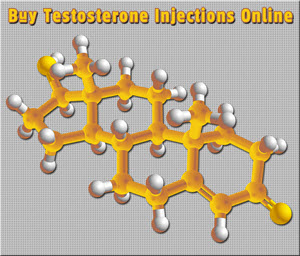Introduction to Testosterone Cypionate
Testosterone Cypionate is a synthetic form of the male hormone testosterone, widely used in the United States for treating conditions associated with low testosterone levels, such as hypogonadism. Its role extends beyond mere hormone replacement, influencing various bodily systems, including the immune system. This article delves into how Testosterone Cypionate impacts the immune system in American men, a topic of increasing relevance given the prevalence of testosterone therapy.
The Role of Testosterone in Immune Function
Testosterone, a key androgen, plays a multifaceted role in the human body. Traditionally recognized for its effects on muscle mass, bone density, and libido, testosterone also modulates immune function. It interacts with immune cells, influencing their proliferation, differentiation, and activity. This interaction suggests that alterations in testosterone levels, such as those induced by Testosterone Cypionate, could have significant implications for immune health.
Impact of Testosterone Cypionate on Immune Cells
Research indicates that testosterone can suppress certain aspects of immune function. For instance, it has been observed to decrease the activity of T-cells, crucial components of the adaptive immune system responsible for identifying and destroying pathogens. Testosterone Cypionate, by elevating testosterone levels, may therefore potentially dampen immune responses. This effect is particularly relevant for American men undergoing testosterone therapy, as it might increase susceptibility to infections.
Testosterone Cypionate and Autoimmune Diseases
Interestingly, the relationship between testosterone and the immune system extends to autoimmune diseases. These conditions, where the immune system mistakenly attacks the body's own tissues, are less prevalent in men than in women. Some studies suggest that testosterone's immunosuppressive effects might contribute to this gender disparity. For American men on Testosterone Cypionate, this could mean a reduced risk of developing autoimmune disorders, although more research is needed to confirm this hypothesis.
Potential Risks and Considerations
While Testosterone Cypionate may offer benefits in terms of immune modulation, it is not without risks. The suppression of immune function could lead to increased vulnerability to infections, a concern that American men considering or undergoing testosterone therapy should be aware of. Moreover, the long-term effects of elevated testosterone levels on the immune system remain understudied, necessitating cautious use and regular monitoring.
Clinical Implications and Future Research
The clinical implications of Testosterone Cypionate's impact on the immune system are significant. Healthcare providers in the United States must consider these effects when prescribing testosterone therapy, balancing the benefits of improved testosterone levels against potential immune system risks. Future research should focus on elucidating the precise mechanisms by which Testosterone Cypionate influences immune function and identifying strategies to mitigate any adverse effects.
Conclusion
Testosterone Cypionate, a commonly used treatment for low testosterone in American men, has notable effects on the immune system. While it may offer protective effects against autoimmune diseases, it also poses risks of immune suppression and increased infection susceptibility. As the use of testosterone therapy continues to rise, understanding its impact on immune health becomes increasingly important. American men and their healthcare providers must navigate these complexities to ensure safe and effective treatment.
In summary, the interplay between Testosterone Cypionate and the immune system underscores the need for a nuanced approach to testosterone therapy, one that considers both the potential benefits and risks to immune health.
Contact Us Today For A Free Consultation

- Testosterone Cypionate: Benefits, Risks, and Management for Aging American Men [Last Updated On: March 12th, 2025] [Originally Added On: March 12th, 2025]
- Testosterone Cypionate: Benefits, Risks, and Long-Term Health Impacts on American Men [Last Updated On: March 17th, 2025] [Originally Added On: March 17th, 2025]
- Testosterone Cypionate: Overcoming Stigma and Enhancing Men's Health in America [Last Updated On: March 17th, 2025] [Originally Added On: March 17th, 2025]
- Testosterone Cypionate Enhances Sleep Quality in American Males Undergoing TRT [Last Updated On: March 18th, 2025] [Originally Added On: March 18th, 2025]
- Testosterone Cypionate: Benefits, Risks, and Prostate Health Management in American Men [Last Updated On: March 18th, 2025] [Originally Added On: March 18th, 2025]
- Navigating Insurance Coverage for Testosterone Cypionate Therapy: A Guide for American Males [Last Updated On: March 19th, 2025] [Originally Added On: March 19th, 2025]
- Minimizing Side Effects of Testosterone Cypionate: A Holistic Approach for American Men [Last Updated On: March 19th, 2025] [Originally Added On: March 19th, 2025]
- Testosterone Cypionate Therapy: Costs, Insurance, and Financial Planning for American Men [Last Updated On: March 19th, 2025] [Originally Added On: March 19th, 2025]
- Testosterone Cypionate: Managing Chronic Conditions in American Men [Last Updated On: March 20th, 2025] [Originally Added On: March 20th, 2025]
- Testosterone Cypionate's Impact on Mental Clarity in American Men: Experiences and Insights [Last Updated On: March 20th, 2025] [Originally Added On: March 20th, 2025]
- Testosterone Cypionate Injection Guide for American Males: Safe Administration and Care [Last Updated On: March 20th, 2025] [Originally Added On: March 20th, 2025]
- Testosterone Cypionate: Enhancing Libido in American Males - Benefits and Considerations [Last Updated On: March 21st, 2025] [Originally Added On: March 21st, 2025]
- Testosterone Cypionate's Role in Weight Management for American Men: Benefits and Risks [Last Updated On: March 22nd, 2025] [Originally Added On: March 22nd, 2025]
- Testosterone Cypionate: Dispelling Myths and Providing Facts for Informed Use [Last Updated On: March 22nd, 2025] [Originally Added On: March 22nd, 2025]
- Testosterone Cypionate's Impact on Joint Health in American Men: Benefits and Risks [Last Updated On: March 22nd, 2025] [Originally Added On: March 22nd, 2025]
- Testosterone Cypionate and Hair Loss: Mechanisms, Studies, and Management Strategies [Last Updated On: March 23rd, 2025] [Originally Added On: March 23rd, 2025]
- Testosterone Cypionate's Impact on Cholesterol Levels in American Males: A Comprehensive Review [Last Updated On: March 23rd, 2025] [Originally Added On: March 23rd, 2025]
- Testosterone Cypionate Guide: Benefits, Risks, and Safe Usage for American Men [Last Updated On: March 24th, 2025] [Originally Added On: March 24th, 2025]
- Testosterone Cypionate: Essential Hormone Therapy for Transgender Men's Gender Affirmation [Last Updated On: March 24th, 2025] [Originally Added On: March 24th, 2025]
- Testosterone Cypionate's Cardiovascular Impact on American Men: Benefits and Risks [Last Updated On: March 24th, 2025] [Originally Added On: March 24th, 2025]
- Testosterone Cypionate: Enhancing Body Composition in American Men - Benefits and Risks [Last Updated On: March 24th, 2025] [Originally Added On: March 24th, 2025]
- Testosterone Cypionate: Enhancing Energy in American Men with Low Testosterone [Last Updated On: March 24th, 2025] [Originally Added On: March 24th, 2025]
- Testosterone Cypionate: A Promising Aid in Managing Diabetes in American Males [Last Updated On: March 24th, 2025] [Originally Added On: March 24th, 2025]
- Testosterone Cypionate: Safety, Benefits, and Monitoring for American Males [Last Updated On: March 24th, 2025] [Originally Added On: March 24th, 2025]
- Testosterone Cypionate's Impact on Liver Function in American Males: Risks and Monitoring [Last Updated On: March 24th, 2025] [Originally Added On: March 24th, 2025]
- Testosterone Cypionate's Impact on Digestive Health in American Men: A Comprehensive Analysis [Last Updated On: March 25th, 2025] [Originally Added On: March 25th, 2025]
- Testosterone Cypionate: A Novel Approach to Managing Allergies in American Males [Last Updated On: March 25th, 2025] [Originally Added On: March 25th, 2025]
- Testosterone Cypionate's Impact on Cognitive Function in American Men: A Comprehensive Overview [Last Updated On: March 25th, 2025] [Originally Added On: March 25th, 2025]
- Testosterone Cypionate: Effects on Skin Health and Management Strategies for American Men [Last Updated On: March 25th, 2025] [Originally Added On: March 25th, 2025]
- Testosterone Cypionate's Impact on Kidney Function in American Men: Risks and Monitoring [Last Updated On: March 25th, 2025] [Originally Added On: March 25th, 2025]
- Testosterone Cypionate's Impact on Blood Pressure in American Men: A Comprehensive Analysis [Last Updated On: March 25th, 2025] [Originally Added On: March 25th, 2025]
- Testosterone Cypionate's Impact on Red Blood Cell Production in American Men [Last Updated On: March 25th, 2025] [Originally Added On: March 25th, 2025]
- Testosterone Cypionate Therapy: Monitoring and Optimizing Levels in American Men [Last Updated On: March 25th, 2025] [Originally Added On: March 25th, 2025]
- Testosterone Cypionate's Impact on Emotional Well-being in American Males: Benefits and Risks [Last Updated On: March 25th, 2025] [Originally Added On: March 25th, 2025]
- Testosterone Cypionate: Legal Status and Compliance for American Males [Last Updated On: March 25th, 2025] [Originally Added On: March 25th, 2025]
- Testosterone Cypionate: A Promising Treatment for Chronic Fatigue in American Males [Last Updated On: March 26th, 2025] [Originally Added On: March 26th, 2025]
- Testosterone Cypionate: A Promising Treatment for Osteoporosis in Aging American Males [Last Updated On: March 26th, 2025] [Originally Added On: March 26th, 2025]
- Testosterone Cypionate's Impact on Vision Health: Benefits and Risks for American Males [Last Updated On: March 26th, 2025] [Originally Added On: March 26th, 2025]
- Testosterone Cypionate's Impact on Thyroid Function in American Males: A Review [Last Updated On: March 26th, 2025] [Originally Added On: March 26th, 2025]
- Testosterone Cypionate's Impact on Mental Health in American Men: Benefits and Risks [Last Updated On: March 26th, 2025] [Originally Added On: March 26th, 2025]
- Testosterone Cypionate: A Promising Treatment for Depression in American Males [Last Updated On: March 26th, 2025] [Originally Added On: March 26th, 2025]
- Testosterone Cypionate: Enhancing Injury Recovery in American Males [Last Updated On: March 27th, 2025] [Originally Added On: March 27th, 2025]
- Testosterone Cypionate's Impact on Immune Function in American Males Undergoing TRT [Last Updated On: March 27th, 2025] [Originally Added On: March 27th, 2025]
- Testosterone Cypionate and Male Pattern Baldness: Risks and Management for American Men [Last Updated On: March 28th, 2025] [Originally Added On: March 28th, 2025]
- Testosterone Cypionate's Impact on Lung Function in American Men: Benefits and Risks [Last Updated On: March 28th, 2025] [Originally Added On: March 28th, 2025]
- Testosterone Cypionate's Impact on Eye Health in American Men: Risks and Benefits [Last Updated On: March 28th, 2025] [Originally Added On: March 28th, 2025]
- Testosterone Cypionate's Impact on Hearing in American Men: A Comprehensive Study [Last Updated On: March 28th, 2025] [Originally Added On: March 28th, 2025]
- Testosterone Cypionate's Impact on Dental Health in American Men: A Comprehensive Analysis [Last Updated On: March 29th, 2025] [Originally Added On: March 29th, 2025]
- Testosterone Cypionate: A Promising Treatment for Autoimmune Disorders in American Men [Last Updated On: March 29th, 2025] [Originally Added On: March 29th, 2025]
- Testosterone Cypionate: Exploring Its Dermatological Benefits for American Males [Last Updated On: March 29th, 2025] [Originally Added On: March 29th, 2025]
- Testosterone Cypionate's Impact on American Men's Nervous System: Benefits and Risks [Last Updated On: March 31st, 2025] [Originally Added On: March 31st, 2025]
- Testosterone Cypionate: A Promising Pain Management Solution for American Males [Last Updated On: March 31st, 2025] [Originally Added On: March 31st, 2025]
- Testosterone Cypionate: A Promising Therapy for Respiratory Health in American Men [Last Updated On: March 31st, 2025] [Originally Added On: March 31st, 2025]
- Testosterone Cypionate's Impact on American Men's Urinary Health: Risks and Management [Last Updated On: April 1st, 2025] [Originally Added On: April 1st, 2025]
- Testosterone Cypionate's Impact on U.S. Male Reproductive Health: Risks and Management [Last Updated On: April 3rd, 2025] [Originally Added On: April 3rd, 2025]
- Testosterone Cypionate: Effects on Endocrine System and Long-term Management in American Men [Last Updated On: April 5th, 2025] [Originally Added On: April 5th, 2025]
- Testosterone Cypionate: Managing Musculoskeletal Disorders in American Males [Last Updated On: April 5th, 2025] [Originally Added On: April 5th, 2025]
- Testosterone Cypionate: A Promising Treatment for Metabolic Disorders in American Males [Last Updated On: April 6th, 2025] [Originally Added On: April 6th, 2025]
- Testosterone Cypionate's Impact on Cardiovascular Health in American Men: A Comprehensive Review [Last Updated On: April 8th, 2025] [Originally Added On: April 8th, 2025]
- Testosterone Cypionate's Impact on Respiratory Health in American Men: Benefits and Risks [Last Updated On: April 9th, 2025] [Originally Added On: April 9th, 2025]
- Testosterone Cypionate's Impact on Gastrointestinal Health in American Males: Benefits and Risks [Last Updated On: April 9th, 2025] [Originally Added On: April 9th, 2025]
Word Count: 531





















